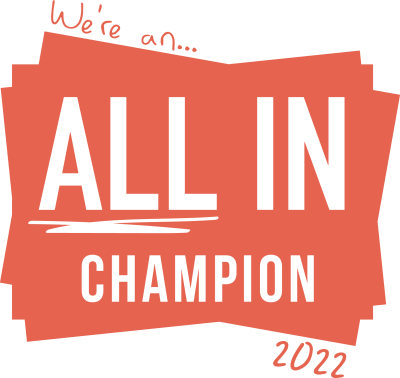Not good enough.
Old is gold: Why the creative industry shouldn’t overlook the over-50s
Nicky Bullard, our Chief Creative Officer, talked to Management Today about her mission to end industry and consumer ageism.
Only 12% of people over the age of 50 are the lead characters in adverts at the moment. “They’re either on a stairlift, a cruise or on the phone to their neighbour to talk about equity release,” says Nicky.
Rarely, if ever, do you see this generation advertising the latest makeup or underwear brand, despite making up a significant portion of the customers who purchase such products. “We’re totally invisible while millennials and Gen Z are everywhere,” she adds.
As a result, people over the age of 50 are understandable upset. Research from Kantar and our Invisible Powerhouse report, which looks into the different attitudes and behaviours of the over-50s. shows that 80% of people over 50 said they were unhappy about how they are represented in marketing and advertising while 7% were really angry. Around 66% felt invisible or ignored and 15% felt depressed because of a lack of representation.
But why should businesses care?
In the UK alone, 52 million people are over the age of 50. They hold 68% of household wealth. Essentially, we’ve got 40% of the population holding the majority of the wealth and businesses are ignoring.
As the country is plunged into recession and battles a cost of living crisis most of us have never faced before, it seems almost counterintuitive to have younger people, who have the least disposable income, be the face of consumer culture.
Grubby Protest
As well as in the creative adverts we see, ageism is evident within the creative industry itself. “When I think about the legal and medical professions, people in their late 60s and 70s have experience that is so valued and respected. Yet in the creative industry, we’re overlooked and seem to have this best before date.”
This idea of a “best before date” prompted Nicky to do something a little bit drastic. She was invited to judge the Direct Lions award at this year’s Cannes Festival and knew that there was going to be a significant number of young faces attending, hoping to be inspired – but age would not be one of the talking points.
She turned up armed with her very own best before date stickers to highlight the ageism within the creative industry – her idea of a grubby protest. She also posted her stunt on LinkedIn, which generated nearly 3,000 likes, 300 comments and 60 shares. The next step for Nicky is to make the stickers available for anyone who wants one.
“We’re actually doing something about this problem rather than just bemoaning the fact that we don’t have people over the age of 50 represented. We’re going to celebrate age and shine a light on what being over 50 is like – it’s bloody amazing!”.
Opportunities for change
It’s now time for other senior leaders to tackle ageism and champion representation for the over 50. Bullard says not only do leaders need to challenge themselves and their ways of thinking, they should also encourage their employees to challenge briefs from clients.
It’s not enough to say you want a specific demographic to be represented. You actually have to look at a brief creatively to see if there is space for people over a certain age to be included and how they can be featured in a non-theistic way. “We look at our advert castings carefully because they can get very stereotypical very quickly, particularly around age.”
Bullard also recommends street casting or looking at older talent within the modelling industry, which is what she prides herself in doing at MullenLowe. “I actively want more people over a certain age to be seen in the work that we’re doing. A brief that’s just come in is targeting empty nesters, so we’ve got a wonderful opportunity to put our money where our mouth is.”
In her role as Chief Creative Officer, she has the power to speak to CEOs and Boards of Directors and talk openly about this issue. There is also power in speaking to agencies to encourage them to make sure everyone is represented and their briefs are more accurately reflective of society.
As the Invisible Report says – 15% of people over the age of 50 feel depressed at the lack of representation in the media. In the words of Nicky Bullard: “Not good enough.”
Nicky Bullard
Chief Creative Officer, MullenLowe Group UK
